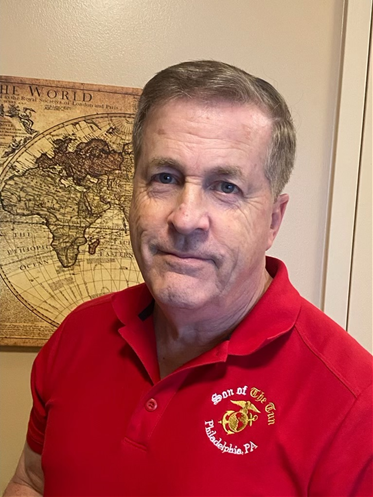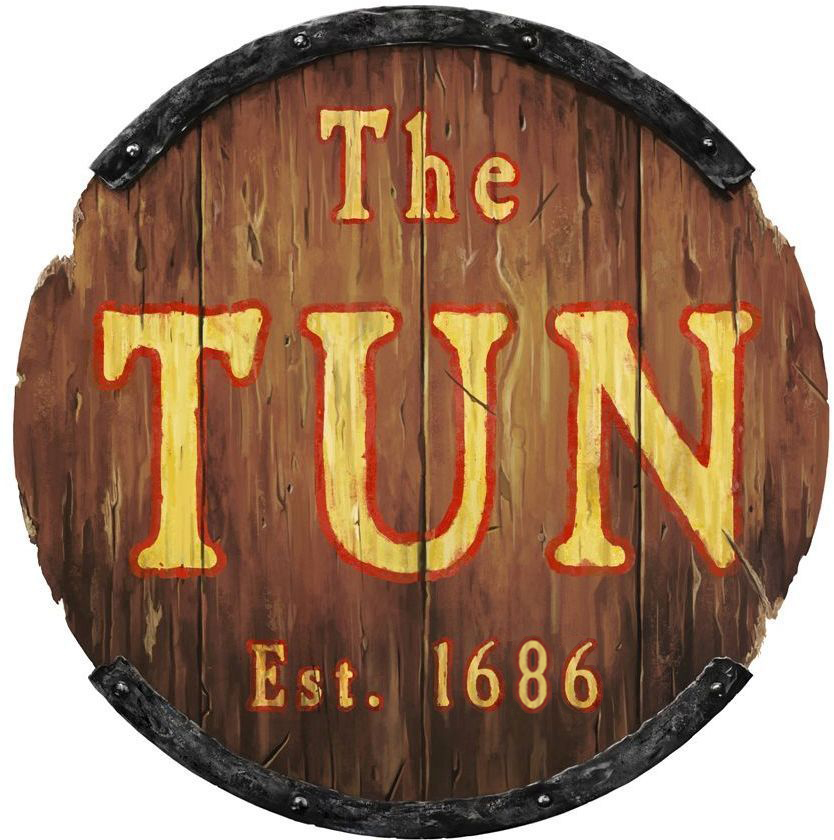 For years, Tun stood as an iconic institution, a hub of camaraderie and community rooted in the history of the United States Marine Corps, among other groups. At the heart of preserving this legacy and location is Pat Dailey, a Marine, whose vision and entrepreneurial spirit gave birth to the idea to recreate a historic Philadelphia establishment into a symbol and home for the members of the six organizations which were founded or first met at Tun.
For years, Tun stood as an iconic institution, a hub of camaraderie and community rooted in the history of the United States Marine Corps, among other groups. At the heart of preserving this legacy and location is Pat Dailey, a Marine, whose vision and entrepreneurial spirit gave birth to the idea to recreate a historic Philadelphia establishment into a symbol and home for the members of the six organizations which were founded or first met at Tun.
Pat, creator of the Tun Legacy Foundation, is a Philadelphia native. He served as a Marine Officer with the 3rd Marine Division and the 1st Marine Air Wing from 1981 to 1985. He has served on the Philadelphia Board of The Marine Corps Scholarship Foundation since 2001. Since 1996, he has been a board member of the Japan America Society of Greater Philadelphia, serving as chair of the organization’s annual Cherry Blossom Festival in 2023, a peak attendance year. He and his wife built, own, and have operated a successful restaurant and adjoining retail store in the Philadelphia suburbs for the past 20 years. Pat recently discussed his background and The Tun®.
What inspired you to join the Marine Corps? Was there a particular event or person that motivated you to serve?
In my last year of college, I was starting to do the interview thing – recruiters would come to the school and look for potential hires. After just a couple of interviews, I felt that I wasn’t quite ready for the corporate life. I wanted something more: adventure, service, a challenge. I saw some marketing pamphlets for the military and decided to investigate. I talked to all four services and for the Army, Navy, and Air Force at the time it seemed that I would need to attend Officer Training School.
The Marines were different. I had to “try out” by going to Officer Candidate School (OCS). It intrigued me and was certainly a stretch-goal for me, but I decided to give it my best and volunteered for OCS.
Can you share any memorable experiences or moments from the Marine Corps? What made those experiences stand out?
As a young Lieutenant with the 3rd Marine Division in Okinawa, it was a different experience than being based here in the U.S. You’re in a foreign land 24/7 … there’s not much familiar to you, and outside the base the language and culture are very different. It was like being deployed for a year, and in my case for nearly four years because I volunteered to stay for four tours. I learned to speak and read Japanese and was invited to participate as an observer with the Japanese army in Hokkaido in northern Japan. It was eye-opening going from the subtropics of Okinawa in January to the sub-arctic in Hokkaido and sleeping in the snowy woodlands for 10 days! Different equipment, different practices and tactics, but the same camaraderie.
On a sad note, in 1983, before finishing my second year of four years overseas, one of my OCS classmates was one of the 220 Marines killed in Beirut. It reinforced that for those of us in the military, life can quickly become sobering.
Can you describe the camaraderie and sense of brotherhood/sisterhood among Marines?
Marines share the common hardship of earning the title “Marine.” We’re the smallest service and probably the most selective. More than 40% of the men I started with in OCS did not make it to graduation, either through attrition or voluntary withdrawal. It’s pretty surprising to see a squad bay at only 60% capacity after 10 weeks of some of the most intense physical conditioning one has ever experienced. My OCS class had quite a few prior enlisted Marines who were a wealth of knowledge on things like passing inspections, but assured us that OCS seemed more physical than their experiences at Parris Island or San Diego. OCS gives you a level of confidence you may never have again.
What are some of the most rewarding aspects of being a Marine? What did you enjoy most about your service?
Most of my four-year Marine Corps career was overseas, and probably 90% of the people I interacted with on a daily basis were Marines. As a young officer placed in charge of about forty Marines only slightly younger than yourself, it can be a challenge, but the Marine Corps seem to attract some of the most interesting, creative, and fearless characters I’d ever met, and it was an honor to lead them. It’s when you left that environment and returned to CONUS that you came to realize how small the Marine Corps really is. Seeing another Marine at a civilian airport was often unusual and might prompt a casual conversation. The respect Marines give each other is also unique. It’s the shared experience of being a Marine that makes it not unlike a fraternity or an extended family. We trust each other, often sight unseen. We don’t want to let another Marine down. Our word is our bond.
Can you provide some background on the Tun and its role in founding the United States Marine Corps? The history of Pennsylvania Freemasons, Society of St. George, St. Andrews Society, the Friendly Sons and Daughters of St. Patrick, Friends Of The Tun, United States Navy?
It’s been really interesting to me as an amateur historian to learn of the other organizations with a heritage at The Tun, and how they see The Tun differently than Marines might. Strictly from a timeline perspective, the Marines (specifically the Continental Marines, forerunners of the United States Marines) were the last group to be affiliated with The Tun. By the time the tavern was used to recruit Marines, it had existed for nearly 100 years. “The Tun Lodge” is considered the first Masonic Lodge in North America — the original meeting minutes held at the Masonic Museum in Philadelphia pre-date all other Lodge meeting documents in North America. It also had a long history of hosting benevolent societies that helped immigrants who arrived in Philadelphia, which was then the largest city in North America and the second-largest in the British Empire, after London. The societies of St. George, St. Andrew, and St. Patrick all have a heritage at The Tun, which was also known as “Mullan’s Tavern” because the Mullan family were the proprietors. John Adams, then a Congressman from Massachusetts and the Chair of the Second Continental Congress Naval Committee, used the second-floor meeting room of The Tun to hold Committee meetings and draft the rules and organizational structure of the Continental Navy — the forerunner of the US Navy.
Are there any legends, stories, or myths associated with the Tun and its connections to famous historical figures from the time? Any notable historical figures that visited?
There are MANY, but some of my favorites are the tales of The Tun being quite the “nightspot” in early colonial Philadelphia, reportedly where Pennsylvania Governors often held celebratory events, and fundraising charity balls were common. It was known for its food, thanks to the women who ran Tun in what is considered its best years: 1720 through 1750. In the 1740s it was also known as “Peg Mullan’s Beefsteak Club” and served the best meals in Philadelphia according to letters from members of the First Continental Congress. Because it was opened in 1693 by one of William Penn’s closest friends, Samuel Carpenter, and his brother, Joshua Carpenter, I think it’s safe to surmise that William Penn raised a tankard or two of Joshua Carpenter’s famous ale. Benjamin Franklin was also a regular, and a member of two organizations that met there. Although it’s conjecture on my part, I don’t think it’s a stretch that “Blackbeard” the pirate likely visited Tun. His fondness for good rum is well-documented and he spent a few days in Philadelphia in 1713 or 1714, purchasing items at a store a short walk from Tun according to eyewitnesses.
Lastly, when George Washington was elected as the Commander-in-Chief of American forces to fight the British, the Congress held his celebratory dinner at Tun.
What are your hopes or goals for the Tun when it is built and opened in November 2025?
My hope is that members of the six organizations feel as though they are “home” in The Tun®. It won’t be a museum to any ONE of the organizations, but each organization will feel a connection to The Tun® — a shared heritage in what is arguably one of the most famous taverns in early American history.
Every donation, no matter the size, makes a real difference and brings us closer to our goal. Send your donations here: https://thetun.org/contribute/general-contributions/
